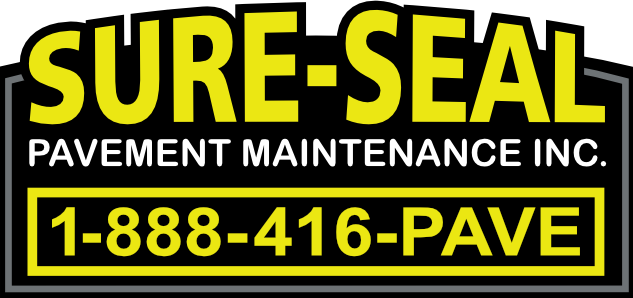 Winter is not the best time to sealcoat your driveway because it presents a lot of challenges that can often be avoided during other times of the year. When your driveway or parking lot is covered in snow, it would be difficult to make out where the worst damages are located. Many asphalt sealcoating contractors advise their customers to arrange any necessary driveway repairs to be done either in the spring, summer, or fall because winter driveway sealcoating presents insurmountable challenges.
Winter is not the best time to sealcoat your driveway because it presents a lot of challenges that can often be avoided during other times of the year. When your driveway or parking lot is covered in snow, it would be difficult to make out where the worst damages are located. Many asphalt sealcoating contractors advise their customers to arrange any necessary driveway repairs to be done either in the spring, summer, or fall because winter driveway sealcoating presents insurmountable challenges.
3 Challenges of Sealcoating in the Winter
Driveway sealcoating in the winter is not entirely impossible in southern climates, but it is a lot more challenging than doing it during any other time of the year. Humidity levels, low temperatures, and time of day can all present their own unique challenges when it comes to getting the job done right. Sealcoating in Ontario is limited to the months of May through October.
Humidity
Before starting any asphalt sealcoating job at any time of the year, it is important to check the humidity levels in the air and make sure that the humidity levels in the air are not too high. Higher humidity levels generally mean there is more moisture in the air, which could lengthen the driveway sealing drying time, causing browning or tracking of the new sealcoat surface. This will inevitably interfere with the integrity of the coating and it will not set properly, which will result in reduced durability of the sealcoat.
Temperature
It is hard to determine the overall best temperature for driveway sealing because the climate varies from one region to another. Generally speaking, though, winter is not an ideal time to commence a driveway sealing job because of the cold weather and precipitation. However, if you are going to seal your driveway in the winter anyway, you need to make sure that the driveway sealing temperature is at an optimal level. Local sealcoating companies will each have their own recommendations of what the optimal temperature is for sealcoating a driveway in their region; the asphalt itself should stand around 10 degrees Celsius (50 degrees Fahrenheit) when the sealcoat is applied. During the drying period, the asphalt should either remain at that temperature or go higher so that the sealcoat can dry and cure successfully.
Sealcoating in the Daytime vs. Sealcoating at Night
Sunlight exposure is extremely important, especially if you absolutely have to apply the sealcoat in cooler temperatures. The best time to sealcoat is as early in the morning as possible on bight sunny day, even though they are usually few and far between in the winter.
The earlier the sealcoat is set in the daytime, the more time it has to dry and the rays of the sun will facilitate the drying process tremendously. At night, the air is always cooler and this will not only slow down the drying and curing process of the sealcoat. The moral of the story is that you should be cautious about sealcoating asphalt in the winter and only do it when it is absolutely necessary.
Sure-Seal Pavement Maintenance Inc. has over 20 years of experience in asphalt paving and repairs. We offer an industry-leading seven-year structural warranty, and we stand behind the quality and durability of our services, ensuring that they will last. For a free consultation, please call our number 416-410-3705 or if you’re in Toronto, call 416-410-3705.

